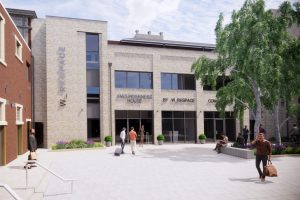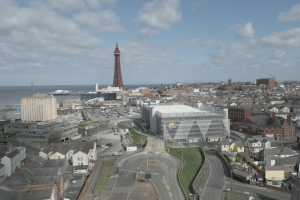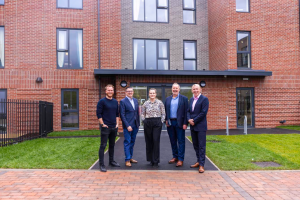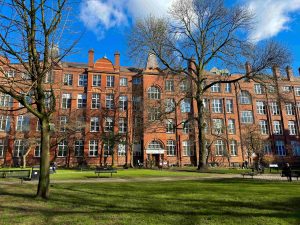KPMG sets out blueprint for the high street

KPMG, the business advisory firm, is calling for a radical rethink of the way high streets and town centres are operated.
In a blueprint for the future its report ‘Hope for the High Street’ says that local authorities should be encouraged to adopt the role of the guardian of high streets and town centres.
It believes town centres will require local government bodies to participate in a combination of five actions: understanding the purpose and function of a modern town centre; shrinking the retail part of the high street; providing flexible planning policies and a mix of uses; introducing creative commercial arrangements to accelerate and sustain change and also working in partnership.
Brian Green, head of Retail for KPMG in the North West, said:Many town centres face difficulties because they haven’t evolved alongside their communities.
“The good news is that there remains a strong demand for collective urban spaces where people can spend time meeting, communicating, eating, drinking and working. But, in their current formats – the way they look, the mix of uses, the functions they offer and the ways in which they are managed – many of our town centres are no longer fit for purpose.”
According to the report, the high street represents an intersection of the interests of four key types of stakeholder – landlords, property occupiers, the local authority (sometimes more than one) and the wider local community.
It suggests that different interests have contributed to High Streets failing to keep pace with societal needs, and argues that each must play a part in planning and delivering change.
As far as local authoties are concerned, land-use planning is of primary importance, with a need for less retail space.
Chris Fry, head of property and construction for KPMG in the North West, urges a more flexible approach to town centre planningis needed: “As part of supporting non-retail exclusive town centres, more residential accommodation – even in high street locations – should be encouraged.
“Rather than relying on building planning applications to shape a policy, local authorities could indicate permissible zonings by neighbourhood blocks or clusters of buildings to determinedly transform an area of the town.”
The report identifies some of the ingredients for success, including: food and beverage outlets and a diversity of entertainment venues; on-street wi-fi access; a mix of independent, as well as national, multiple retailers and service providers, with both larger and smaller unit sizes; a balance between commercial and residential uses within the town centre to provide a better and safer ambience throughout the day; ample car parking (preferably free for a period); convenient public transport; pedestrian-friendly street layouts and clean, safe and interesting physical environments and public spaces.








